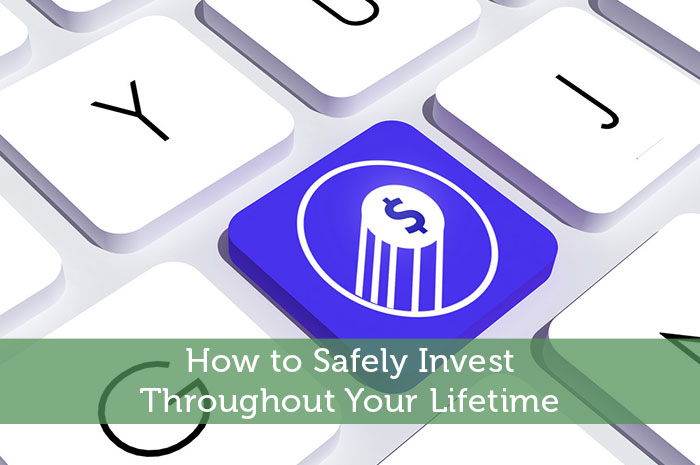Your parents may have taught you the value of a savings account when you were a child. Money sitting in a piggy bank won’t accrue interest unlike a solid savings account. Investing as an adult is a critical pathway to building wealth, but many people don’t understand this concept. In fact, they may not feel like they have the funds to pursue investment options. It’s possible to safely invest even a small amount throughout your lifetime when you follow a few simple steps.
Understand the Difference Between Stocks and Bonds
The first step toward successful investing is simply concept understanding. There are two main investment options, including stocks and bonds. Stocks allow you to buy into a particular company or business based on a given value. This stock value can move up or down as the business improves or declines. Motley Fool stock recommendations offer a relatively high payback for a low investment cost, but there’s high risk involved. Bonds, in contrast, allow you to invest in a business with a low payback amount. You don’t take on as much risk with bonds, however, so your income will typically increase at a slow rate.
Take Advantage of Employer Options
Most consumers start their investing strategies at their work. Employers may offer a 401(k), pension or stock option based on their benefit package configuration. Ideally, sign up for every option possible. Employers will often add their contribution to your retirement fund as a salary perk. You can also add in a percentage of your paycheck too. As a result, you have money automatically allocated to your investment options without any financial hardship. Your taxable income drops as well because the investments are taken out of your paycheck before it’s taxed. Employees who take advantage of every employer option usually see a higher investment return in the future.
Evaluate Your Investments Over the Years
When you began your current job, you signed up for certain stocks and bonds within your pension or 401(k). Ten years may have passed since that signup period, however. Ideally, you should reevaluate your investments at least once a year. Your personal priorities may have changed, such as getting married or having a child. Those investment options should change with the times too. As you grow older, your finances cannot withstand excessive losses through stock issues because you’ll need your retirement funds very soon. Consider a slow change from mostly stocks to mainly bonds as you approach retirement age. You’ll have a slower, investment growth rate, but it will be stable through the volatile stock-market years.
Consider Short-Term Investments
There are many short-term investments that you can make to supplement basic stock-and-bond options. Certificates of deposits and money-market accounts are safe investments for several hundred or thousand dollars of your after-tax income. Select a reputable bank, and invest your money for a short 6- or 12-month period. Your return will be relatively low, but it will usually be several points higher than a standard savings account. Reinvest the money if possible so that it compounds at an even higher rate. Building wealth takes patience at times.
Avoid Early Withdrawals
One of the worst ways to treat your investments is to use them before their maturation date. Most stocks, bonds and investment accounts have certain time periods or age requirements for a safe and lucrative withdrawal. If you withdraw money before these set dates, you’ll pay significant fees and taxes. It’s possible to lose most of your investment through these early withdrawals. Ideally, leave your funds untouched within these accounts until it’s safe to withdraw them. You’ll be able to enjoy most of your wealth with that strategy in mind.
Work With a Financial Adviser
You might be confused about the possible investment options in the marketplace today. The stock market is constantly changing, and you need to be educated about its details. When you invest your money at a bank, these institutions have wealth advisers who are highly trained at their jobs. You’re welcome to work exclusively with one person, so that your investments are as safe as possible. If any concerns arise regarding your account, the adviser can immediately contact you and correct them as necessary. In the end, you can avert any financial damage to your accounts with a diligent professional helping you out.
Protect Yourself With Diversity
Regardless of your age or investment strategy, it’s always a smart idea to protect yourself with diverse financial accounts. Spread your money across many different stocks, bonds and savings accounts. If one account suffers a major loss, you won’t lose all of your money. Over time, you’ll recover from that loss as the account gains ground once again.
The best way to start any investment pattern is to start with your own bank. In fact, businesses use this strategy for their investment purposes when they’re starting any exporting or importing routines. Any banking institution, can offer solid advice about investing opportunities. In the end, you need a strong partner who can help you find the right financial balance through the years.






There are two advices here on the post which I like them most: # avoid early withdrawals (which actually means emotional intelligence and patience) and # protect yourself with diversity, which is after all a rule of thumb in making investments and accumulating money.
The insights about investing in stocks/bonds, accepting stock options offered by employers, and short-term investments, help you to refrain from early withdrawals of your investments and save for a rainy day. A financial adviser is a must to guide us towards saving intelligently.